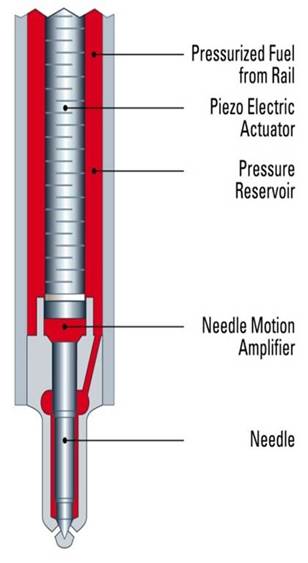The 2AD-FHV and 2AD-FTV are both 2.2-liter, four-cylinder diesel engines produced by Toyota. They are part of the Toyota AD engine family, which is a series of 16-valve DOHC inline-4 turbo diesel engines with electronic common rail direct injection.
Key Differences
The main difference between the 2AD-FHV and 2AD-FTV is the type of fuel injection system used. The 2AD-FHV uses a piezo injector, while the 2AD-FTV uses a solenoid injector. Piezo injectors are more precise and can deliver fuel in smaller quantities, which can help to improve fuel economy and emissions.

Another difference is the type of SCV (suction control valve) used. The 2AD-FHV uses a compact SCV, while the 2AD-FTV uses a standard SCV. The compact SCV is smaller and lighter, which can help to reduce noise and vibration.

The 2AD-FHV also has a higher compression ratio than the 2AD-FTV (16.8:1 vs. 15.8:1). This means that the air-fuel mixture is compressed more before it is ignited, which can help to improve power and efficiency.
Applications
The 2AD-FHV was used in a variety of Toyota and Lexus models, including the Avensis, RAV4, and Lexus IS220d. The 2AD-FTV was used in a more limited number of models, including the Avensis and RAV4.
Which Engine is Better?
The 2AD-FHV is generally considered to be the better engine due to its more advanced fuel injection system and higher compression ratio. However, both engines are reliable and fuel-efficient.
Here is a table summarizing the key differences between the 2AD-FHV and 2AD-FTV:
| Feature | 2AD-FHV | 2AD-FTV |
|---|---|---|
| Fuel injection system | Piezo injector | Solenoid injector |
| SCV type | Compact SCV | Standard SCV |
| Compression ratio | 16.8:1 | 15.8:1 |
| Power output | 170 PS (125 kW) | 150 PS (110 kW) |
| Torque output | 340 N⋅m (251 lb⋅ft) | 310 N⋅m (229 lb⋅ft) |
| Fuel economy | 49.6–51.4 mpg‑imp (5.70–5.50 L/100 km; 41.3–42.8 mpg‑US) | 52.3–53.3 mpg‑imp (5.40–5.30 L/100 km; 43.6–44.8 mpg‑US) |
| CO2 emissions | 146 g/km | 134 g/km |
Conclusion
The 2AD-FHV and 2AD-FTV are both reliable and fuel-efficient engines. The 2AD-FHV is generally considered to be the better engine due to its more advanced fuel injection system and higher compression ratio. However, both engines are good choices for a variety of Toyota and Lexus models.